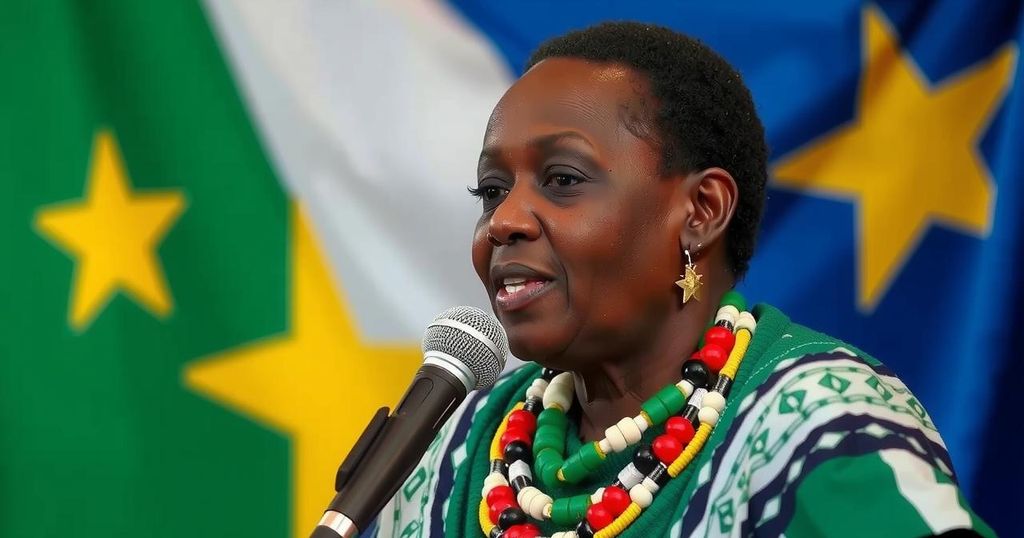In the context of the ongoing Sudanese conflict, Dinka Ngok leaders in Abyei are demanding self-governance due to delays in a referendum that will decide the region’s future. They request international support for their rights under the 2005 Comprehensive Peace Agreement, which has been rendered ineffective due to unresolved disputes over voter eligibility and changing geopolitical dynamics. The Dinka Ngok fear for their stability as they face the realities of statelessness and rising tensions in the area.
Leaders of the Dinka Ngok community in Abyei are calling for self-governance in light of the prolonged conflict in Sudan, which jeopardizes the prospect of a referendum to decide the region’s future. They have submitted a memorandum to the United Nations Interim Security Force for Abyei (UNISFA), urging international support for their claim of self-rule during a transitional period, pending an agreement between Sudan and South Sudan regarding Abyei’s final status. The 2005 Comprehensive Peace Agreement conferred special status upon Abyei and included a provision for a referendum to select whether Abyei would remain part of Sudan or join South Sudan. However, this referendum has faced several delays, chiefly due to disputes over voter eligibility, particularly concerning the inclusion of the nomadic Misseriya tribe. The memorandum expresses the Dinka Ngok’s belief that “It became increasingly clear that Sudan is resisting the loss of Abyei, and that South Sudan…lacks the capacity or the will to go to war with Sudan over Abyei.” With the ongoing strife in Sudan and South Sudan’s reluctance to act independently, the Dinka Ngok foresee little likelihood of a resolution in the immediate future. They caution that the already conflict-ridden Abyei is at risk of becoming an arena for violence once again. Moreover, the document underscores the dire situation faced by Abyei residents, who find themselves in a state of statelessness, devoid of the protections and assistance typically afforded by recognized nations. The Dinka Ngok assert their right to self-governance as outlined in the 2005 agreement, which previously permitted residents of Abyei the possibility of dual citizenship in both Sudan and South Sudan. However, following South Sudan’s secession and changes in administrative oversight, this provision has effectively lapsed. The Dinka Ngok leaders now seek acknowledgment of their right to self-governance and reinstatement of dual citizenship to resolve the impasse and foster peaceful relations with both nations.
The conflict in Sudan has significantly impacted the status of Abyei, a disputed region claimed by both Sudan and South Sudan. The Comprehensive Peace Agreement of 2005 aimed to resolve conflicts between the North and South and proposed a referendum for Abyei’s future. Yet, this referendum has not materialized due to ongoing disputes concerning voter eligibility and geopolitical tensions, particularly relating to the Misseriya tribe’s involvement. As violence continues to characterize the region, the Dinka Ngok community, the primary inhabitants, are increasingly advocating for self-rule to secure their interests and rights amidst a precarious political landscape.
The demand for self-rule by the Dinka Ngok leaders in Abyei reflects the complexities and challenges surrounding the region’s political status. As the conflict in Sudan persists and the hope for a referendum diminishes, the urgency for international support and recognition of the Dinka Ngok’s rights becomes critical. Their calls for self-governance and dual citizenship underscore the need for a durable solution that addresses the historical and ongoing grievances of the Abyei community while navigating the delicate relations between Sudan and South Sudan.
Original Source: sudantribune.com






